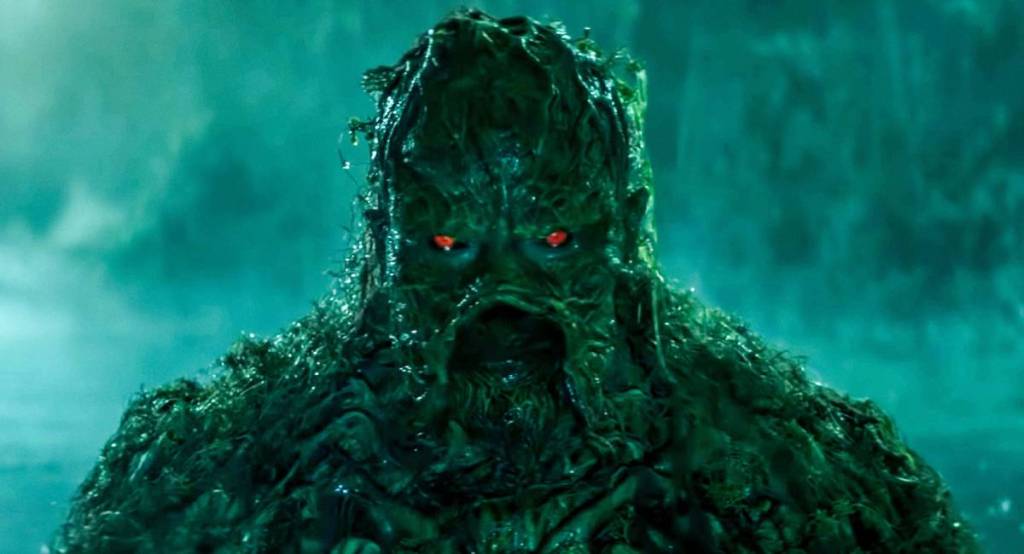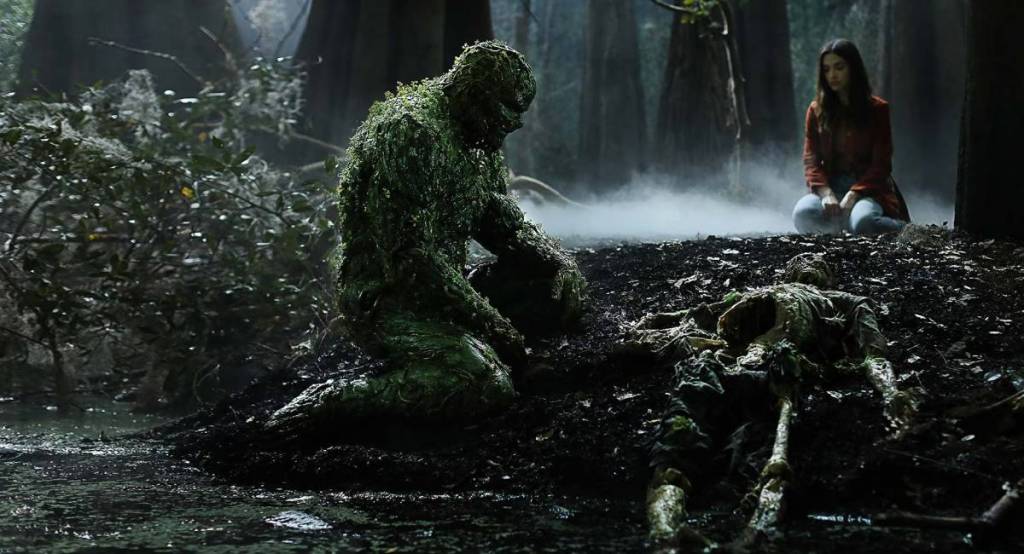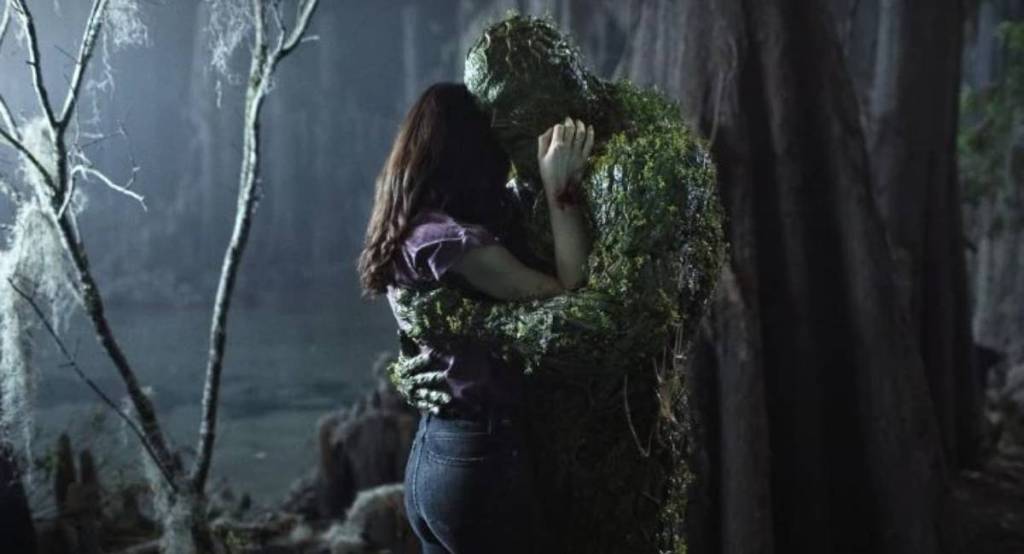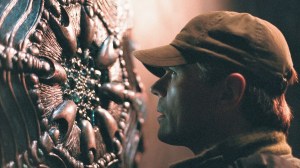The DC streaming series Swamp Thing only ran for a single season, and that was far less than it was worthy of. Based upon DC Comics’ eponymous ecological superhero, Swamp Thing debuted on the now-defunct streaming service DC Universe on May 31, 2019, telling the origin story of Dr. Alec Holland (Andy Bean) and his transformation into the human-plant hybrid creature known as Swamp Thing. The series, which also focused upon Alec’s relationship with his ally Abby Arcane (Crystal Reed) was well-received upon its debut, with many praising its infusion of horror elements into a superhero TV series.
Videos by ComicBook.com
Sadly, Swamp Thing‘s end was announced just after the first episode of the show premiered on DC Universe. While Swamp Thing is set to return in James Gunn’s forthcoming DCU, with James Mangold attached to helm his new big-screen adventure, Swamp Thing‘s single-season story and near-immediate cancellation remain one of the biggest misfortunes of superhero television, considering just how great a series Swamp Thing really was.
Swamp Thing’s Streaming Series Is His Best Adaptation to Date

While Swamp Thing has a long, extensive history and mythology in DC Comics, his history of big and small-screen adaptations is decidedly hit-and-miss. The 1980s Swamp Thing movies directed by Wes Craven and Jim Wynorski were low-budget, campy affairs that did little to move the needle on the character’s popularity. Meanwhile, the 1991 Swamp Thing animated series and its tie-in toy line genuinely captured the character’s essence well, though the show was only given a run of five episodes. Additionally, the live-action Swamp Thing series had an impressive 72-episode run from 1990 to 1993, along with a much-improved suit and makeup on Dick Durock’s titular hero (Durock reprising the role from the two ’80s Swamp Thing films.) Yet, DC Universe’s Swamp Thing stands as the purest and most engaging Swamp Thing adaptation yet.
Not unlike the comics that inspired it, Swamp Thing brought a genuine horror movie tone to its tale of a heroic, swamp-dwelling monster seldom seen in modern superhero movies or TV shows. That tone also enabled Swamp Thing to look and feel wholly distinct from the pop and flair of the Arrowverse and the urban crime saga of Titans to truly stand alone among live-action DC TV shows. What made Swamp Thing stand out even more was just how big-screen-esque it looked.
[RELATED: DCU Fan Art Imagines James Mangold’s Swamp Thing]
Swamp Thing Had Big-Screen Worthy Production Values

Up until relatively recently, live-action superhero stories on the small screen rarely had the resources to match the epic, awe-inspiring scale of cinematic superhero adventures. It can be said that DC Universe’s Swamp Thing was among the first to truly leave any such budgetary restrictions completely out of view to present itself as a superhero movie that just happened to be unfolding as 10 episodes. With big stars like Virginia Madsen, Will Patton, and Kevin Durand among its cast, Swamp Thing carried with it a prestige matched by its haunting swamp setting pulled right out of a Southern Gothic horror movie and which never came across as anything other than the genuine article.
Then there’s the show’s presentation of its protagonist, a literal humanoid mass of vegetation, and here, too, Swamp Thing did not disappoint. Swamp Thing, as seen on his namesake DC Universe series, looked like he’d been pulled right from the comics in the phenomenal suit and make-up worn by Derek Mears. The fact that Swamp Thing also strove to realize its hero through such practical means when CGI and motion capture would likely have been the choice for a cinematic Swamp Thing only made the series that much more unforgettable.
Swamp Thing Captured the Pathos & the Power of Its Title Character

It may be popular to think of Batman as the DC superhero that has encountered the most tragedy, but tragedy and sorrow are baked into Swamp Thing’s DNA. The Swamp Thing series made sure to place great emphasis upon Alec Holland’s tale as being a tragedy of a man morphed into a monster through scientific misfortune, with the in-tandem performances of Andy Bean as Alec and Derek Mears as Swamp Thing perfectly capturing the sadness of Alec Holland’s story combined with the heroism he discovers with his newfound powers and the monster movie-vibe inherent in his setting and transformation.
Swamp Thing also took great care to act as a character study of Dr. Alec Holland the man, a scientist who once indulged in duplicitous research methods that greatly damaged his reputation in the scientific community. Furthermore, Swamp Thing also took a deep dive into the lives of the entire supporting cast. Many of the show’s characters dealt with grief and bitterness in ways not unlike Alec himself, particularly in Maria Sunderland (Virginia Madsen) in her unraveling marriage with her husband Avery (Will Patton) and the increasingly obsessive quest she embarks on to revive her deceased daughter Shawna. As much as any superhero TV series has ever been, Swamp Thing embodied a human drama with top-notch visual effects and production values arguably not matched again in small-screen superhero storytelling until the arrival of Superman & Lois.
The fact that Swamp Thing‘s cancellation came right as the show was getting off the ground makes its swift end deeply unfortunate. Even more so, the fact that Swamp Thing was such a fantastic tribute to its titular hero makes its single-season run (and Swamp Thing’s brief multiversal cameo in the CW’s Crisis on Infinite Earths) even more lamentable. Swamp Thing definitely deserved far better than the 10-episode run it was granted, with no previous live-action or animated take on the character doing him the same degree of justice.








